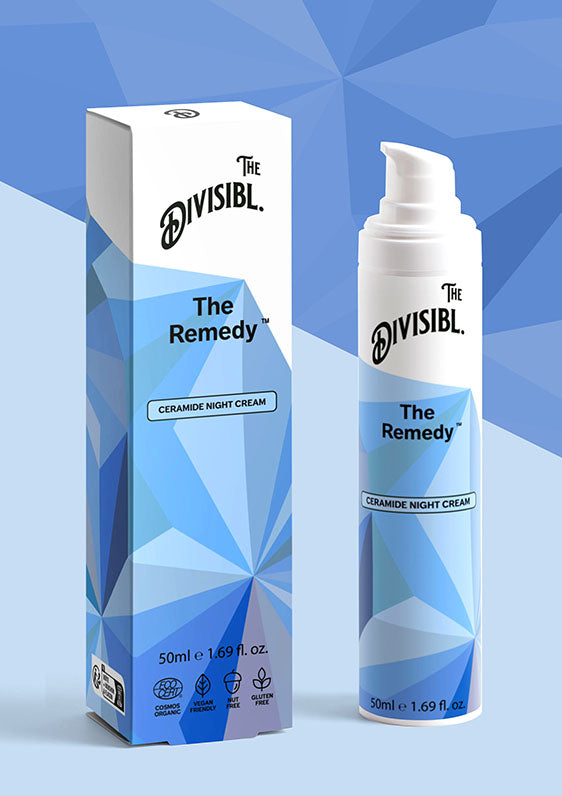Your skin isn’t just a passive layer - it’s a dynamic, intelligent organ that constantly adapts, protects, and regenerates. It’s your body’s first line of defense, shielding you from environmental aggressors, regulating temperature, and even communicating internal health signals.
Yet, many skincare routines work against the skin rather than with it. Harsh exfoliation, overuse of actives, and unnecessary steps can disrupt its natural balance, leading to irritation, dehydration, and premature aging.
Understanding skin biology and barrier function is the key to optimizing your routine - so let’s break it down and learn how to work with your skin, not against it.
The Science Behind Your Skin’s Intelligence
1. Your Skin Barrier: The Ultimate Protector
Your skin barrier is your body’s built-in defense system. It consists of the stratum corneum, the outermost layer of the epidermis, which acts like a brick-and-mortar wall, corneocytes (skin cells) are the bricks, and lipids (fats) are the mortar holding everything together. 
This barrier serves two critical functions:
- Inside-out protection: Preventing moisture loss and keeping hydration locked in.
- Outside-in defense: Blocking pollutants, bacteria, and irritants from penetrating the skin.
When your barrier is strong and intact, your skin is smooth, hydrated, and resilient. When it’s compromised, you experience dryness, sensitivity, and inflammation.
2. The Skin’s Built-In Repair System
Your skin is constantly renewing itself. Every 28-40 days, your epidermis undergoes a full cycle of cell turnover, where old cells shed and new ones rise to the surface. 
Factors like age, stress, pollution, and skincare habits can slow down this process, leading to dullness, uneven texture, and clogged pores. Supporting healthy cell turnover with gentle exfoliation and hydration keeps your skin functioning optimally.
3. The Microbiome: Your Skin’s Invisible Army
Your skin is home to trillions of bacteria, fungi, and microorganisms that form the skin microbiome - a delicate ecosystem that helps regulate pH, inflammation, and immunity. 
A balanced microbiome keeps your skin healthy, while disruptions (from harsh cleansers or overuse of antibiotics) can lead to breakouts, irritation, and weakened defenses.
How to Work with Your Skin - Not Against It
1. Strengthen Your Skin Barrier
A strong barrier means healthy, resilient skin. Here’s how to fortify it:
- Use ceramides, fatty acids, and cholesterol - these mimic your skin’s natural lipids and reinforce its protective layer.
- Avoid harsh exfoliants - over-exfoliation strips the barrier, leading to sensitivity and dehydration.
- Limit fragrance and alcohol-heavy products, these can disrupt the skin’s natural balance.
2. Hydration Is Key
Your skin thrives on hydration, but not all moisture is created equal.
- Hyaluronic acid attracts water into the skin, keeping it plump and hydrated.
- Glycerin helps maintain moisture balance and prevents dehydration.
- Occlusives like squalane and shea butter seal hydration in and prevent water loss.
3. Support Healthy Cell Turnover
Instead of aggressive exfoliation, opt for gentle renewal:
- AHAs (like lactic acid) encourage smooth texture without stripping the skin.
- Enzyme exfoliants dissolve dead skin cells without irritation.
- Retinoids boost collagen and accelerate renewal, but use them wisely to avoid overuse.
4. Protect Your Skin from Environmental Stressors
Pollution, UV rays, and blue light accelerate aging and weaken the skin barrier.
- Antioxidants like vitamin C and niacinamide neutralize free radicals and prevent oxidative damage.
- Sunscreen (SPF 30+) shields against UV exposure and prevents premature aging.
- Barrier-repairing ingredients help counteract environmental stress.
5. Keep Your Microbiome Balanced
Your skin’s microbiome thrives on balance, not excessive cleansing or stripping.
- Use gentle, pH-balanced cleansers to maintain microbial harmony.
- Probiotic skincare supports healthy bacteria and strengthens immunity.
- Avoid antibacterial overuse, which can disrupt the microbiome.
Your skin is smarter than you think, it knows how to protect, repair, and regenerate when given the right support. Instead of fighting against it, work with it by strengthening your barrier, hydrating effectively, supporting renewal, and protecting against environmental stressors.
Skincare isn’t about fixing flaws, it’s about optimizing what your skin already does best.
 Skin (Anatomy): Function, Types and Structure | Biology Dictionary
Skin (Anatomy): Function, Types and Structure | Biology Dictionary






